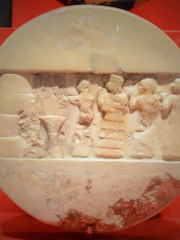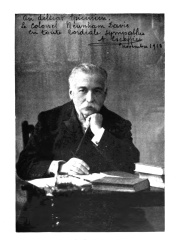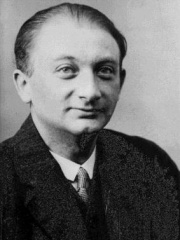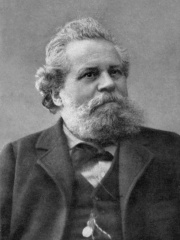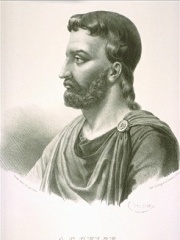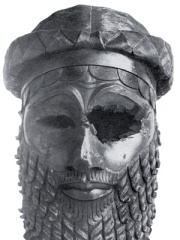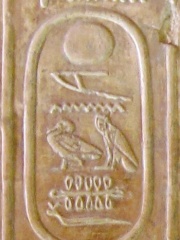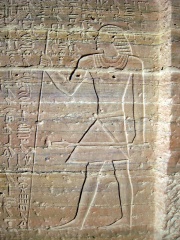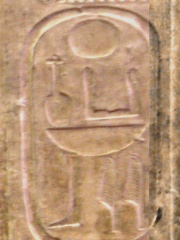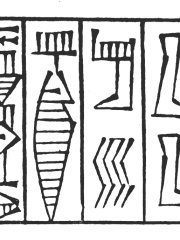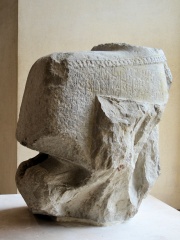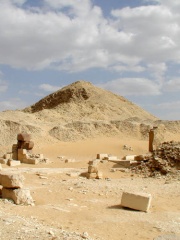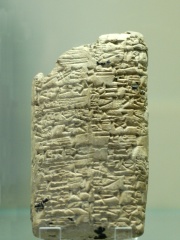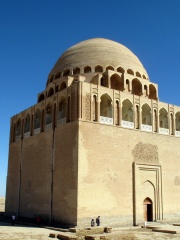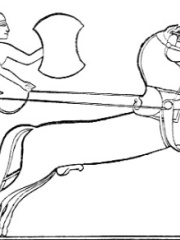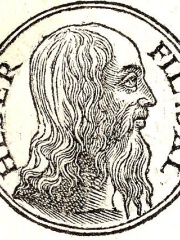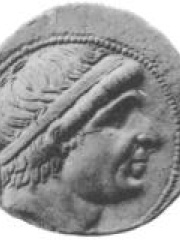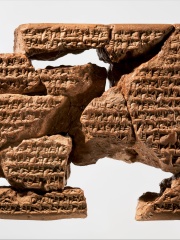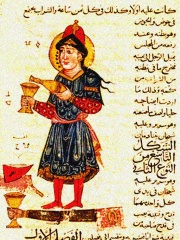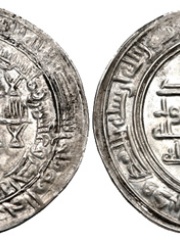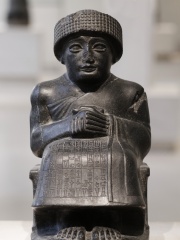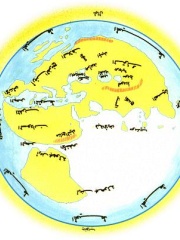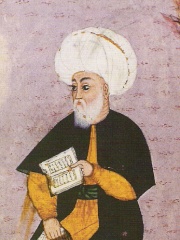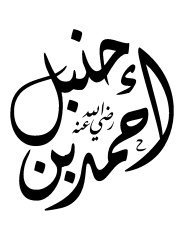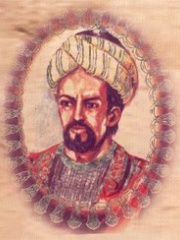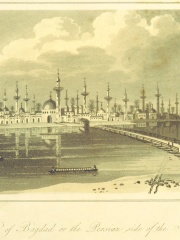作家
Enheduanna
2300 BC - 2300 BC
ZH.WIKIPEDIA PAGE VIEWS (PV)
Memorability Metrics
Page views of Enheduanna by language
Among 作家
Among 作家, Enheduanna ranks 393 out of 7,302. Before her are Auguste Escoffier, Cornelius Nepos, Elena Ferrante, Sylvia Plath, Paul Éluard, and Octavio Paz. After her are Joseph Roth, Christopher Marlowe, Giosuè Carducci, Harry Martinson, Aulus Cornelius Celsus, and Frank Herbert.
Most Popular 作家 in Wikipedia
Go to all RankingsAuguste Escoffier
1847 - 1935
HPI: 74.28
Rank: 387
Cornelius Nepos
100 BC - 25 BC
HPI: 74.23
Rank: 388
Elena Ferrante
1943 - Present
HPI: 74.21
Rank: 389
Sylvia Plath
1932 - 1963
HPI: 74.19
Rank: 390
Paul Éluard
1895 - 1952
HPI: 74.18
Rank: 391
Octavio Paz
1914 - 1998
HPI: 74.17
Rank: 392
Enheduanna
2300 BC - 2300 BC
HPI: 74.16
Rank: 393
Joseph Roth
1894 - 1939
HPI: 74.16
Rank: 394
Christopher Marlowe
1564 - 1593
HPI: 74.16
Rank: 395
Giosuè Carducci
1835 - 1907
HPI: 74.14
Rank: 396
Harry Martinson
1904 - 1978
HPI: 74.14
Rank: 397
Aulus Cornelius Celsus
25 BC - 50
HPI: 74.13
Rank: 398
Frank Herbert
1920 - 1986
HPI: 74.08
Rank: 399
Contemporaries
Among people born in 2300 BC, Enheduanna ranks 2. Before her is Sargon of Akkad. After her are Merenre Nemtyemsaf II, Autobiography of Harkhuf, Neferkare Neby, Dudu of Akkad, Puzur-Inshushinak, Erridupizir, Pamba, Ankhesenpepi IV, and Iput II. Among people deceased in 2300 BC, Enheduanna ranks 1. After her are Rimush, Ur-Zababa, Erridupizir, and Pamba.
Others Born in 2300 BC
Go to all RankingsSargon of Akkad
POLITICIAN
2300 BC - 2215 BC
HPI: 78.68
Rank: 1
Enheduanna
WRITER
2300 BC - 2300 BC
HPI: 74.16
Rank: 2
Merenre Nemtyemsaf II
POLITICIAN
2300 BC - 2200 BC
HPI: 67.77
Rank: 3
Autobiography of Harkhuf
POLITICIAN
2300 BC - 2259 BC
HPI: 67.47
Rank: 4
Neferkare Neby
PHYSICIAN
2300 BC - 2260 BC
HPI: 63.73
Rank: 5
Dudu of Akkad
POLITICIAN
2300 BC - 2200 BC
HPI: 63.29
Rank: 6
Puzur-Inshushinak
POLITICIAN
2300 BC - Present
HPI: 59.36
Rank: 7
Erridupizir
POLITICIAN
2300 BC - 2300 BC
HPI: 58.94
Rank: 8
Pamba
POLITICIAN
2300 BC - 2300 BC
HPI: 58.03
Rank: 9
Ankhesenpepi IV
COMPANION
2300 BC - Present
HPI: 56.55
Rank: 10
Iput II
POLITICIAN
2300 BC - 2200 BC
HPI: 56.49
Rank: 11
Others Deceased in 2300 BC
Go to all RankingsEnheduanna
WRITER
2300 BC - 2300 BC
HPI: 74.16
Rank: 1
Rimush
POLITICIAN
HPI: 64.11
Rank: 2
Ur-Zababa
POLITICIAN
2350 BC - 2300 BC
HPI: 59.58
Rank: 3
Erridupizir
POLITICIAN
2300 BC - 2300 BC
HPI: 58.94
Rank: 4
Pamba
POLITICIAN
2300 BC - 2300 BC
HPI: 58.03
Rank: 5
In 伊拉克
Among people born in 伊拉克, Enheduanna ranks 36 out of NaN. Before her are Ahmad Sanjar (1100), Jalal Talabani (1933), Šuppiluliuma I (-1344), Eber (-2038), Antiochus I Soter (-324), and Sinsharishkun (-700). After her are Ahmad ibn Fadlan (900), Ismail al-Jazari (1136), Al-Mu'tasim (796), Gudea (-2200), Abdul Latif Rashid (1944), and Abu Bakr al-Baghdadi (1971).
Others born in 伊拉克
Go to all RankingsAhmad Sanjar
MILITARY PERSONNEL
1100 - 1157
HPI: 75.52
Rank: 30
Jalal Talabani
POLITICIAN
1933 - 2017
HPI: 74.91
Rank: 31
Šuppiluliuma I
POLITICIAN
1344 BC - 1321 BC
HPI: 74.57
Rank: 32
Eber
RELIGIOUS FIGURE
2038 BC - 1574 BC
HPI: 74.57
Rank: 33
Antiochus I Soter
POLITICIAN
324 BC - 261 BC
HPI: 74.33
Rank: 34
Sinsharishkun
POLITICIAN
700 BC - 612 BC
HPI: 74.19
Rank: 35
Enheduanna
WRITER
2300 BC - 2300 BC
HPI: 74.16
Rank: 36
Ahmad ibn Fadlan
WRITER
900 - 960
HPI: 73.87
Rank: 37
Ismail al-Jazari
INVENTOR
1136 - 1206
HPI: 73.82
Rank: 38
Al-Mu'tasim
POLITICIAN
796 - 842
HPI: 73.39
Rank: 39
Gudea
POLITICIAN
2200 BC - 2200 BC
HPI: 73.22
Rank: 40
Abdul Latif Rashid
POLITICIAN
1944 - Present
HPI: 73.19
Rank: 41
Abu Bakr al-Baghdadi
EXTREMIST
1971 - 2019
HPI: 73.04
Rank: 42
Among 作家 In 伊拉克
Among 作家 born in 伊拉克, Enheduanna ranks 4. Before her are Al-Masudi (896), Fuzûlî (1494), and Ahmad ibn Hanbal (780). After her are Ahmad ibn Fadlan (900), Berossus (-400), Al-Mutanabbi (915), Ibn Sirin (653), Ibn al-Jawzi (1116), Ibn Khallikan (1211), Karim Findi (1946), and Ibn al-Nadim (1000).
Al-Masudi
896 - 956
HPI: 78.74
Rank: 1
Fuzûlî
1494 - 1556
HPI: 78.46
Rank: 2
Ahmad ibn Hanbal
780 - 855
HPI: 78.16
Rank: 3
Enheduanna
2300 BC - 2300 BC
HPI: 74.16
Rank: 4
Ahmad ibn Fadlan
900 - 960
HPI: 73.87
Rank: 5
Berossus
400 BC - 300 BC
HPI: 70.12
Rank: 6
Al-Mutanabbi
915 - 965
HPI: 68.51
Rank: 7
Ibn Sirin
653 - 729
HPI: 67.63
Rank: 8
Ibn al-Jawzi
1116 - 1200
HPI: 67.35
Rank: 9
Ibn Khallikan
1211 - 1282
HPI: 67.09
Rank: 10
Karim Findi
1946 - Present
HPI: 66.74
Rank: 11
Ibn al-Nadim
1000 - 995
HPI: 66.44
Rank: 12
